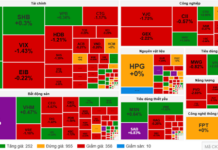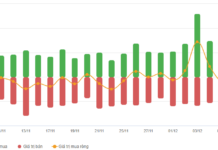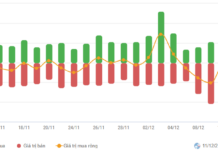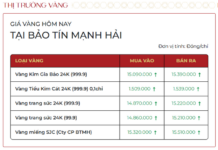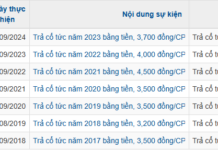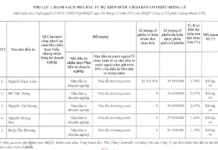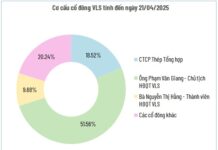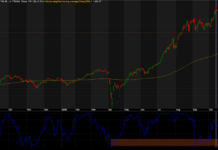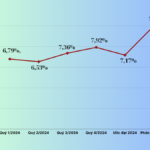
Navigating Challenges: Vietnam’s Fiscal Policy in 2024
|
Crafting and Refining Legal Frameworks
As reported by the Ministry of Finance, based on resolutions and directives from the Party, the National Assembly, and the Government, the Ministry swiftly devised action plans to execute socio-economic development strategies and state budget estimates. Fiscal policies were adjusted accordingly, focusing on alleviating challenges faced by businesses and citizens, boosting growth, and safeguarding social welfare.
Additionally, rigorous inspection, supervision, and progress-tracking efforts were implemented across localities to ensure public investment disbursement and the fulfillment of national target programs. The Ministry of Finance presented and advised on crucial bills to the National Assembly, including amendments to the Securities Law, Accounting Law, and laws pertaining to the state budget and taxation. They also adjusted the value-added tax policy, reducing tax rates by 2% for certain goods and services to support businesses.
Concurrently, the Ministry issued over 80 circulars, and the Government and Prime Minister promulgated a series of decrees and decisions to refine the legal framework for finance and budget sectors.
Executing the Government’s 2024 Work Program and the Prime Minister’s Directive No. 01/NQ-CP on key tasks and solutions for socio-economic development and state budget estimates for 2024, the Ministry of Finance accomplished 63 out of 72 assigned projects (87.5%) as of December 27, 2024. This included 38 projects assigned during the steering process. By December 31, 2024, the Ministry is projected to complete 70 out of 71 assigned projects (98.6% of the plan)…
Overall, the research and development of financial mechanisms and policies closely aligned with the Party’s guidelines and addressed the content and timeline requirements set by the Government and the Prime Minister. It also tackled significant and complex issues facing the nation amid economic challenges. These efforts contributed to macroeconomic stability, inflation control, sustainable economic growth, effective social issue management, administrative procedure reform, improved business environment, enhanced national competitiveness, and continued restructuring of the state budget.
State Budget Revenue Surpasses Estimates by 17.4%
In 2024, state budget revenue reached VND 1,997.3 trillion, exceeding estimates by 17.4%. Specifically, domestic revenue achieved 115.2% of the estimate, while revenue from crude oil reached 126.2%, and trade balance revenue stood at 134.2%.
The tax exemption, reduction, and extension policies, with a total value of VND 197.3 trillion, provided much-needed support to businesses and citizens, enabling them to overcome difficulties and maintain production and business operations. These measures also played a role in curbing inflation and ensuring macroeconomic stability.
State budget expenditure for 2024 is estimated at VND 1,830.8 trillion, equivalent to 86.4% of the estimate, including development investment expenditure at 7.1% of the estimate and regular expenditure at 94.5%, ensuring timely response to emerging tasks.
Furthermore, the Ministry of Finance saved VND 5 trillion from regular expenditure to supplement essential social programs such as providing permanent housing for the poor, improving the transportation system, and addressing the aftermath of natural disasters.
Based on revenue and expenditure outcomes, the budget deficit for 2024 was maintained at 3.4% of GDP, lower than the estimate. The government bond issuance mobilized VND 330.4 trillion at an average interest rate of 2.52%/year, contributing to the stability of the financial and monetary market. Moving forward, the Ministry of Finance will focus on administrative reform solutions, enhanced digitization in financial and tax management, and accelerated public investment disbursement to foster sustainable economic growth.
|
Earlier, in a discussion with the press, the Government leader emphasized the challenges faced by the Vietnamese economy in 2024 due to external factors such as tax, interest rate, exchange rate, inflation, and conflict issues. Given the country’s high level of economic openness, these external factors had significant impacts. Despite these challenges, under the leadership of the Party and the Government, and with the dedication of local authorities, businesses, and citizens, Vietnam successfully accomplished its socio-economic development goals for 2024, as evidenced by the achievement or overachievement of all set targets. |
– 9:45 PM, Dec 30, 2024
The 2024 Total Budget Revenue Surpasses Projections by 17.4%
The year 2024 witnessed the relentless endeavors of the Ministry of Finance in executing its fiscal and state budget duties. Through agile and resolute fiscal policies, the Ministry achieved commendable outcomes in budget revenue and expenditure, significantly contributing to macroeconomic stability, inflation control, and social welfare assurance.
The Vietnamese Economy Through an International Lens: Asserting Its Global Standing
With a solid foundation and well-tailored development strategies, Vietnam continues to cement its position as a shining star in Southeast Asia and on the world stage.

